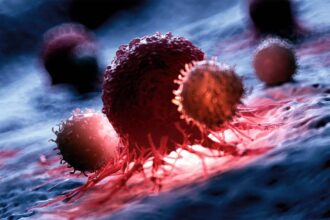Headaches are one of the most common health problems in the United States. Millions of Americans deal with headaches every week, and many do not understand what triggers them or how to stop them naturally. The good news is that most headaches are not dangerous, and simple lifestyle changes can greatly reduce how often they happen.
This guide explains the most common causes of headaches in the US and the best natural ways to relieve them. The information here is easy to follow and works for people wanting safe, drug-free solutions. At HealthGuiders.com, we always share trusted health tips that are easy to apply in your daily life, so feel free to explore more wellness guides on our website.
Let’s take a closer look at why headaches happen and what you can do to fix them naturally.
Tension Headaches: The Most Common Type in the US
Tension headaches are the number one cause of headaches for Americans. These headaches usually feel like a tight band around your head or pressure on the temples.
What Causes Tension Headaches
Tension headaches often come from everyday habits and stress. The most common triggers include long hours on computers, neck strain from bad posture, lack of sleep, dehydration, and emotional stress.
Many people in the US spend hours each day sitting at a desk, which puts a lot of pressure on the neck muscles. When these muscles tighten, they send pain signals to the head, creating tension headaches.
How to Fix Tension Headaches Naturally
One of the best natural ways to relieve tension headaches is to stretch your neck and shoulders often. Taking short breaks every 30 to 45 minutes can help reduce muscle strain. Drinking enough water throughout the day also helps prevent dehydration-related headaches.
Another effective natural fix is practicing slow breathing. Deep breathing relaxes the nervous system and reduces stress, which can stop headaches before they start. Gentle massages on your temples or the base of your neck can also help ease muscle tightness.
If you want to improve your overall wellness routine, check out more helpful guides on HealthGuiders.com to build habits that support a headache-free lifestyle.
Migraine Headaches: A Serious and Often Misunderstood Condition
Migraines are common in the US and are known for causing intense throbbing pain, sensitivity to light, nausea, and sometimes vision changes. Migraines can last for hours or even days.
What Causes Migraines
Migraines are usually triggered by changes in the body or environment. Common triggers include hormonal changes in women, certain foods like cheese or chocolate, bright lights, loud sounds, stress, and lack of sleep. Genetics also play a role, as migraines often run in families.
Natural Ways to Manage Migraines
Many people find that keeping a headache diary helps identify what triggers their migraines. Once you know what causes your migraine, you can avoid those triggers more easily.
One natural strategy is to maintain a regular sleep schedule. Sleeping too little or too much can trigger migraines, so a consistent routine is key. Staying hydrated, eating on time, and managing stress with calming activities like meditation or walking also help.
For some people, applying a cold or warm compress to the head can provide relief. Both heat and ice help relax tense muscles or reduce inflammation, depending on the type of pain.
Dehydration Headaches: A Common Problem in the US
Dehydration headaches happen when the body does not have enough water to function properly. Many Americans are dehydrated without realizing it, especially those who drink more coffee, soda, or energy drinks than water.
How Dehydration Causes Headaches
When your body lacks water, the brain temporarily shrinks due to fluid loss. This shrinking pulls the brain away from the skull, causing pain. Even mild dehydration can cause a dull, throbbing headache.
How to Fix Dehydration Headaches Naturally
The simplest natural fix is to drink more water. Most adults need at least eight cups of water per day, and even more if they live in hot climates or are physically active. Eating water-rich foods like cucumbers, oranges, and watermelon also helps.
Reducing sugary drinks and alcohol is another smart step, since they can worsen dehydration. If you often forget to drink water, setting reminders or carrying a reusable bottle can make a big difference.
Explore our hydration tips on HealthGuiders.com for more easy ways to keep your body balanced.
Sinus Headaches: Common During Allergy Seasons
Many people in the US experience sinus headaches during allergy season. Sinus headaches create pressure around the nose, forehead, and eyes, often along with nasal congestion.
Why Sinus Headaches Happen
Sinus headaches occur when the sinus cavities become inflamed due to allergies, infections, or cold weather. This inflammation causes pressure buildup, leading to pain around the face and head.
Natural Ways to Relieve Sinus Headaches
One of the best home remedies is steam inhalation. Steam helps open the sinus passages and reduce congestion. You can do this by taking a hot shower or leaning over a bowl of hot water.
Another natural method is using a saline nasal spray to flush out irritants and mucus. Drinking warm fluids like herbal tea or warm water with honey also helps reduce inflammation.
If allergies contribute to your headaches, keeping your home dust-free and using air purifiers can reduce triggers.
Eye Strain Headaches: A Growing Issue Due to Screen Time
As more people work from home or spend long hours on computers, eye strain headaches have become very common in the US.
What Causes Eye Strain
Eye strain happens when you focus on a screen for too long without breaks. Blue light from screens also makes the eyes work harder. Poor lighting, glare, and sitting too close to the screen worsen the problem.
Natural Fixes for Eye Strain Headaches
Following the 20-20-20 rule helps reduce eye strain. Every 20 minutes, look at something 20 feet away for at least 20 seconds. Adjusting your screen brightness and keeping your monitor at eye level also helps.
Dry eyes can also trigger headaches, so blinking often and using a humidifier can reduce discomfort. Natural light during the day is better than harsh artificial lighting, so try to work near a window when possible.
Poor Sleep: A Hidden Cause of Daily Headaches
Sleep plays a major role in your overall health. Many Americans do not get enough sleep or have irregular sleep schedules, which often leads to morning or daytime headaches.
How Poor Sleep Causes Headaches
When you do not sleep well, your body does not get enough time to repair itself. This can lead to muscle tension, stress, and hormone changes that trigger headaches.
Natural Remedies for Sleep-Related Headaches
Going to bed at the same time each night helps regulate your internal clock. Avoiding heavy meals, caffeine, and screens before bedtime improves sleep quality. Many people also find that a warm shower or gentle stretching helps them relax before bed.
If you want more sleep improvement guides, HealthGuiders.com has several helpful articles to support better rest.
When Should You Worry About Headaches?
Most headaches are harmless and can be treated naturally. However, if you experience sudden severe pain, headaches after an injury, or headaches that do not improve over time, it is best to see a doctor.
Frequently Asked Questions (FAQs)
What is the most common cause of headaches in the US?
Tension headaches are the most common cause due to stress, long screen time, and poor posture.
Can dehydration cause headaches every day?
Yes. Even mild dehydration can cause daily headaches if you do not drink enough water.
Are natural remedies enough to stop headaches?
For most people, natural remedies work very well. However, severe or long-lasting headaches should be checked by a doctor.
How can I prevent headaches naturally?
Stay hydrated, stretch often, sleep well, limit screen time, and manage stress through calming activities.
Do headaches mean something serious?
Most headaches are not serious. But if the pain is sudden and severe, or happens with other symptoms, seek medical help.
Conclusion
Headaches are extremely common in the US, but the good news is that most can be prevented and relieved with natural fixes. By staying hydrated, improving posture, reducing stress, and getting enough sleep, you can reduce how often headaches happen. Small daily changes can make a big difference in your long-term health. For more helpful wellness guides, visit HealthGuiders.com and explore our expert-crafted tips.




